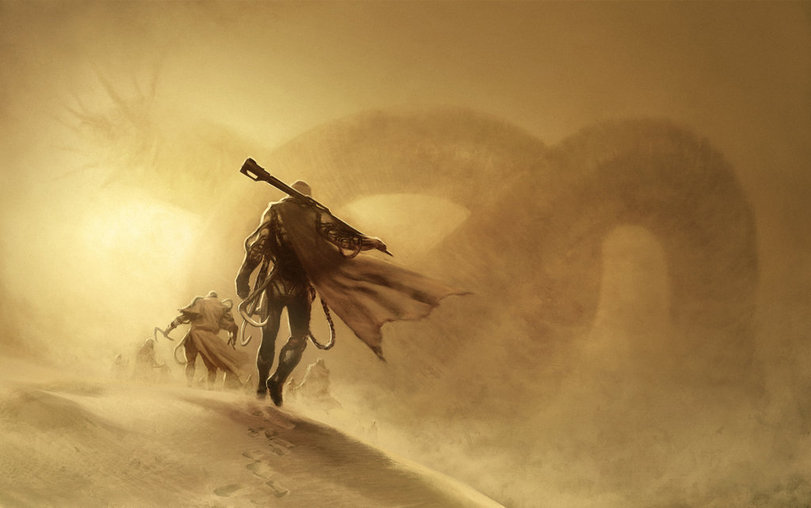I was flabbergasted by Dune when I first read it, and I am again, just now, finishing it again. Not because it isn't flawed (there are flaws); not because of the intelligent use of sense of smell to evoke reality (the spice, the smell of the sietch, the salt of Caladan's ocean); not because of the artful weaving of scenes which completely are their own creatures but create something much more cohesive and greater in my mind; not because of the powerful and realistic portrayals of women; not because of dozens of other reasons why Dune is the best book science fiction has ever produced.
No, I am stunned because, for the very first time, in the first chapter I realized that Frank Herbert had to be a Buddhist. There was no way he could not be. No way...
I looked it up: yes, Frank Herbert had converted from Catholicism to Zen Buddhism in the Sixties. The Catholic and Muslim overtones of Dune had always been overt, exotic, and delicious in a way other books don't seem able to embrace: but as I read on, I also realized that this book could not have have existed without this particular philosophical spine and musculature. At certain points in the book, the characters speak (and oft become) koans.
I am wondering what else Dune will give to me (that I previously had no idea was there) in my future readings.
When I first reviewed this in 2008 for this list (and lost the review), I remember saying that a book need not be perfect to be great. This time, I am going to lift a passage from Thomas Merton, that I read just today. (As an aside, Frank Herbert took six years to write Dune. This may be why the other books in the series do not speak to me the way Dune does. I'm thinking they must have been written much for quickly.)
"In any case it is depressing that those who serve God and love Him sometimes write badly, when those who do not believe in Him take pains to write so well. I am not talking about grammar and syntax, but about having something to say and saying it in sentences that are not half dead. ...Imperfection is the penalty of rushing into print. And people who rush into print too often do so not because they really have anything to say, but because they think it is important for something by them to be in print. The fact that your subject may be very important in itself does not necessarily mean that what you have written about it is important."
Thank you, Thomas Merton. And thank you, Frank Herbert. Thank you so much.


 RSS Feed
RSS Feed